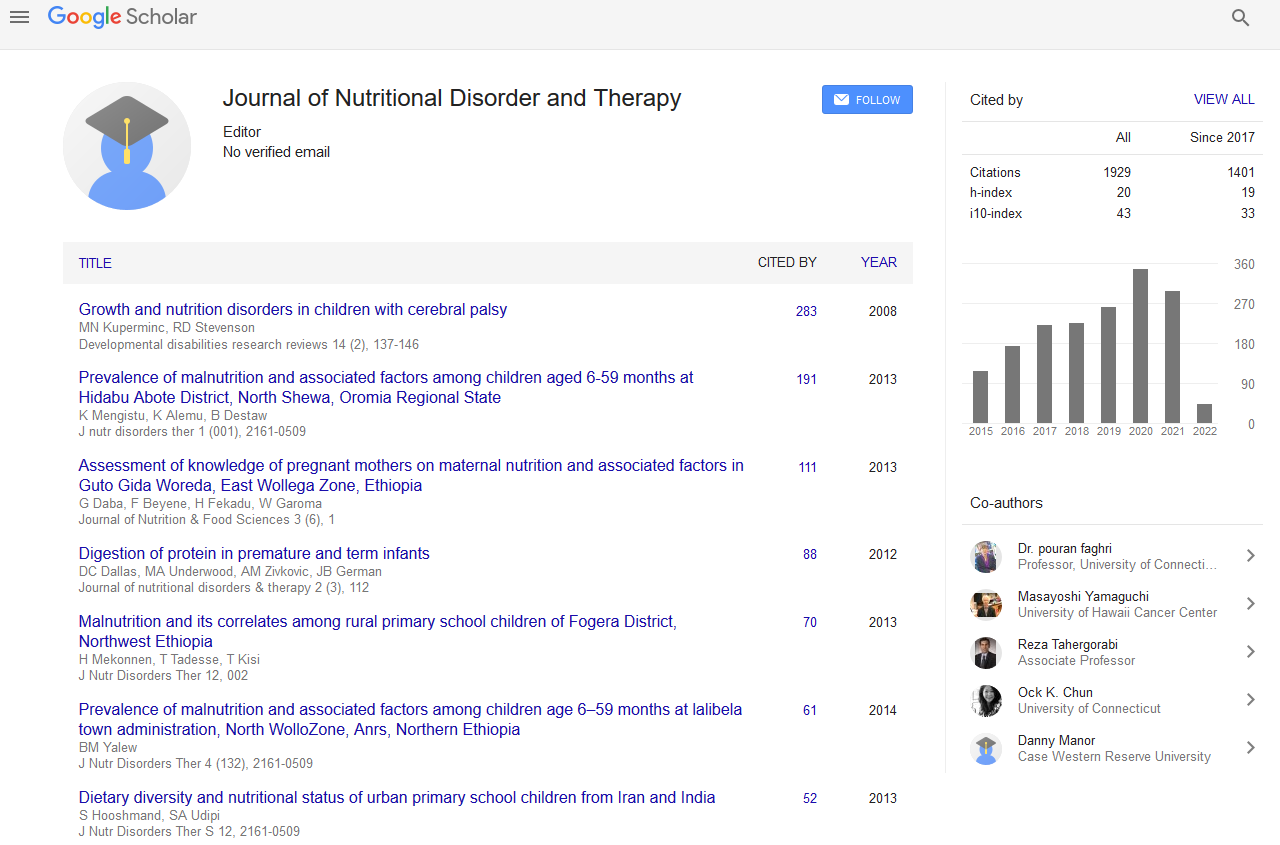Indexed In
- Open J Gate
- Genamics JournalSeek
- Academic Keys
- JournalTOCs
- Ulrich's Periodicals Directory
- RefSeek
- Hamdard University
- EBSCO A-Z
- OCLC- WorldCat
- Publons
- Geneva Foundation for Medical Education and Research
- Euro Pub
Useful Links
Share This Page
Journal Flyer

Open Access Journals
- Agri and Aquaculture
- Biochemistry
- Bioinformatics & Systems Biology
- Business & Management
- Chemistry
- Clinical Sciences
- Engineering
- Food & Nutrition
- General Science
- Genetics & Molecular Biology
- Immunology & Microbiology
- Medical Sciences
- Neuroscience & Psychology
- Nursing & Health Care
- Pharmaceutical Sciences
Feeding difficulties in young PICU survivors: A scoping review of the healthcare research
Joint Event on Advances in Neonatal and Pediatric Nutrition & 14th International Congress on Advances in Natural Medicines, Nutraceuticals & Neurocognition
July 19-21, 2018 | London, UK
Kathryn Morton
University Hospital Southampton NHS Foundation Trust, UK
Posters & Accepted Abstracts: J Nutr Disorders
Abstract:
The association between critical illness and feeding difficulties are well described in survivors of adult Intensive Care Unit (ICU). Complex feeding disorders are described in children with Congenital Heart Disease (CHD) and preterm infants, resulting in growth failure and significant parental anxiety. There is a paucity of evidence describing the prevalence of feeding difficulties amongst Paediatric Intensive Care Unit (PICU) survivors and subsequent impact on family life. The aim of this work was to complete a scoping review of evidence describing feeding difficulties amongst PICU survivors. Using predefined search terms, an advanced search was conducted of six electronic databases plus grey literature and cross-referencing. Publications were eligible if they explored feeding difficulties in survivors of paediatric and/or neonatal intensive care, including parental experiences. Following initial title and abstract review, two reviewers independently screened full-texted publications and extracted study data. Of the 9618 articles from 33 different searches, 88 publications were initially reviewed with just seven studies meeting the inclusion criteria. From those included, there was evidence linking length of intubation with oral feeding dysfunction in preterm infants and infants with CHD. However, there was only one paper which addressed feeding amongst paediatric survivors and impact on family life. As the majority of PICU admissions are infants, there is a need to explore this further in order to describe the prevalence of feeding difficulties and develop appropriate toolkits to reduce the burden of feeding difficulties post-discharge.


